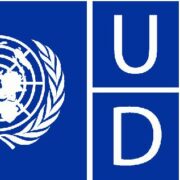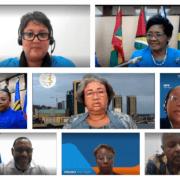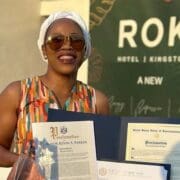Black Immigrant Daily News
The rapidly-growing bottled water industry can undermine progress towards a key sustainable development goal: safe water for all, says a new United Nations report.
Based on an analysis of literature and data from 109 countries, the report says that in just five decades bottled water has developed into “a major and essentially standalone economic sector,” experiencing 73% growth from 2010 to 2020. And sales are expected to almost double by 2030, from US$ 270 billion to $500 billion.
Released a few days prior to World Water Day (March 22), the report by UN University’s Canadian-based Institute for Water, Environment and Health concludes that the unrestricted expansion of the bottled water industry “is not aligned strategically with the goal of providing universal access to drinking water or at least slows global progress in this regard, distracting development efforts and redirecting attention to a less reliable and less affordable option for many, while remaining highly profitable for producers.”
Says Kaveh Madani, UNU-INWEH’s new Director: “The rise in bottled water consumption reflects decades of limited progress in and many failures of public water supply systems.”
When the Sustainable Development Goals were agreed in 2015, he notes, experts elsewhere estimated an annual investment of US$ 114 billion was needed from 2015 to 2030 to achieve a key target: universal safe drinking water.
The report says providing safe water to the roughly 2 billion people without it woulds require an annual investment of less than half the US$ 270 billion now spent every year on bottled water.
“This points to a global case of extreme social injustice, whereby billions of people worldwide do not have access to reliable water services while others enjoy water luxury.”
Tap water perceptions
The study quotes surveys showing bottled water is often perceived in the Global North as a healthier and tastier product than tap water – more a luxury good than a necessity. In the Global South, sales are driven by the lack or absence of reliable public water supplies and water delivery infrastructure limitations due to rapid urbanization.
In mid- and low-income countries, bottled water consumption is linked to poor tap water quality and often unreliable public water supply systems – problems often caused by corruption and chronic underinvestment in piped water infrastructure.
Beverage corporations are adept at marketing bottled water as a safe alternative to tap water by drawing attention to isolated public water system failures, says UNU-INWEH researcher and lead author Zeineb Bouhlel, adding that “even if in certain countries piped water is or can be of good quality, restoring public trust in tap water is likely to require substantial marketing and advocacy efforts.”
Not necessarily safe
Dr. Bouhlel notes that the source of bottled water (municipal system, surface, etc.) the treatment processes used (e.g. chlorination, ultraviolet disinfection, ozonation, reverse osmosis), the storage conditions (duration, light exposure, temperature), and packaging (plastic, glass), can all potentially alter water quality. This may be inorganic (e.g. heavy metals, pH, turbidity etc.), organic (benzene, pesticides, microplastics, etc.) and microbiological (pathogenic bacteria, viruses, fungus and parasitic protozoa).
According to the report, “the mineral composition of bottled water can vary significantly between different brands, within the same brand in different countries, and even between different bottles of the same batch.”
The report lists examples from over 40 countries in every world region of contamination of hundreds of bottled water brands and all bottled water types.
“This review constitutes strong evidence against the misleading perception that bottled water is an unquestionably safe drinking water source,” says Dr. Bouhlel.
Water bottlers generally face less scrutiny than public water utilities
Co-author Vladimir Smakhtin, past Director of UNU-INWEH, underscores the report’s finding that “bottled water is generally not nearly as well-regulated and is tested less frequently and for fewer parameters. Strict water quality standards for tap water are rarely applied to bottled water, and even if such analyses are carried out, the results seldom make it to the public domain.”
Bottled water producers, he says, have largely avoided the scrutiny governments impose on public water utilities, and amid the market’s rapid growth, it is “probably more important than ever to strengthen legislation that regulates the industry overall, and its water quality standards in particular.”
With respect to the industry’s environmental impacts, the report says there is “little data available on water volumes extracted,” largely due to the lack of transparency and legal foundation that would have forced bottling companies to disclose that information publicly and assess the environmental consequences.”
“Local impacts on water resources may be significant,” the report says.
In the USA, for example, Nestl? Waters extracts 3 million litres a day from Florida Springs; in France, Danone extracts up to 10 million litres a day from Evian-les-Bains in the French Alps; and in China, the Hangzhou Wahaha Group extracts up to 12 million litres daily from Changbai Mountains springs.
Regarding plastic pollution, the researchers cite estimates that the industry produced around 600 billion plastic bottles and containers in 2021, which converts to some 25 million tonnes of PET waste – most of it not recycled and destined for landfills – a mass of plastic equal to the weight of 625,000 40-ton trucks, enough to form a bumper-to-bumper line from New York to Bangkok.
According to the report, the bottled water sector used 35% of the PET bottles produced globally in 2019; 85% wind up in landfills or unregulated waste.
By the numbers
Among the report’s many insights, derived from data analysis and other information assembled from global studies and literature:
Over 1 million bottles of water are sold worldwide every minute
Annual spending per capita worldwide is US$ 34
Worldwide annual consumption of the three main bottled water types – treated, mineral, and natural – is estimated at 350 billion litres
The estimated US $1.225 trillion in bottled water revenues represent 17 to 24% of the global market for non-alcoholic packaged beverages
The biggest market segment (with 47% of global sales) is treated bottled water, which could originate from public water systems or surface water, and that undergoes a disinfection treatment such as chlorination
Citizens of Asia-Pacific are the biggest bottled water consumers, followed by North Americans and Europeans
60% of global sales are in the “Global South” (Asia-Pacific, Africa, Latin America and the Caribbean)
By country, the USA is the largest market, with around US$ 64 billion in sales, followed by China (almost US$ 45 billion) and Indonesia (US$ 22 billion). Together, these three countries constitute almost half of the world market. Other top countries by sales: Canada, Australia, Singapore, Germany, Thailand, Mexico, Thailand, Italy, Japan
The average cost of a bottle of water in North America and Europe is around US$ 2.50, more than double the price in Asia, Africa and LAC ($0.80, $0.90 and $1, respectively). Australia, the fifth largest market, has the highest average price: $3.57 per unit.
Bottled water per litre can cost 150 to 1,000 times more than the price a municipality charges for tap water.
Biggest per capita consumers: Singapore and Australia. Citizens of Singapore spent $1,348 per capita on bottled water in 2021, Australians $386
According to previous studies, about 31% of Canadians, 38% of Americans, and 60% of Italians use bottled water as their primary drinking source. In the Dominican Republic, 60% of households use bottled water as their primary water source, with a strong correlation between income and bottled water consumption. About 80% of Mexicans use bottled water, and 10% use home-purified water as their primary drinking water source; roughly 90% cite health concerns for doing so
Egypt is the fastest-growing market for treated bottled water (40% per year). Seven other countries from the Global South are among the top 10 fastest-growing markets: Algeria, Brazil, Indonesia, United Arab Emirates, India, Morocco, and Saudi Arabia.
In Europe, Germany is the biggest bottled water market; in Latin America and the Caribbean, Mexico is the biggest market; in Africa, it’s South Africa.
Treated water appears to be the market’s largest component by volume, while natural waters appear to generate the most profit.
Five companies – PepsiCo, Coca-Cola, Nestl? S.A., Danone S.A, and Primo Corporation have combined sales of $65 billion, over 25% of the global total
Earlier studies of water withdrawals declared in India, Pakistan, Mexico and Nepal showed total estimated withdrawals by Coca-Cola and Nestl? in 2021 at 300 and 100 billion litres, respectively
Donate At Caribbean News Service, we do not charge for our content and we want to keep it that way. We are seeking support from individuals and organisations so we can continue our work & develop CNS further.
NewsAmericasNow.com






